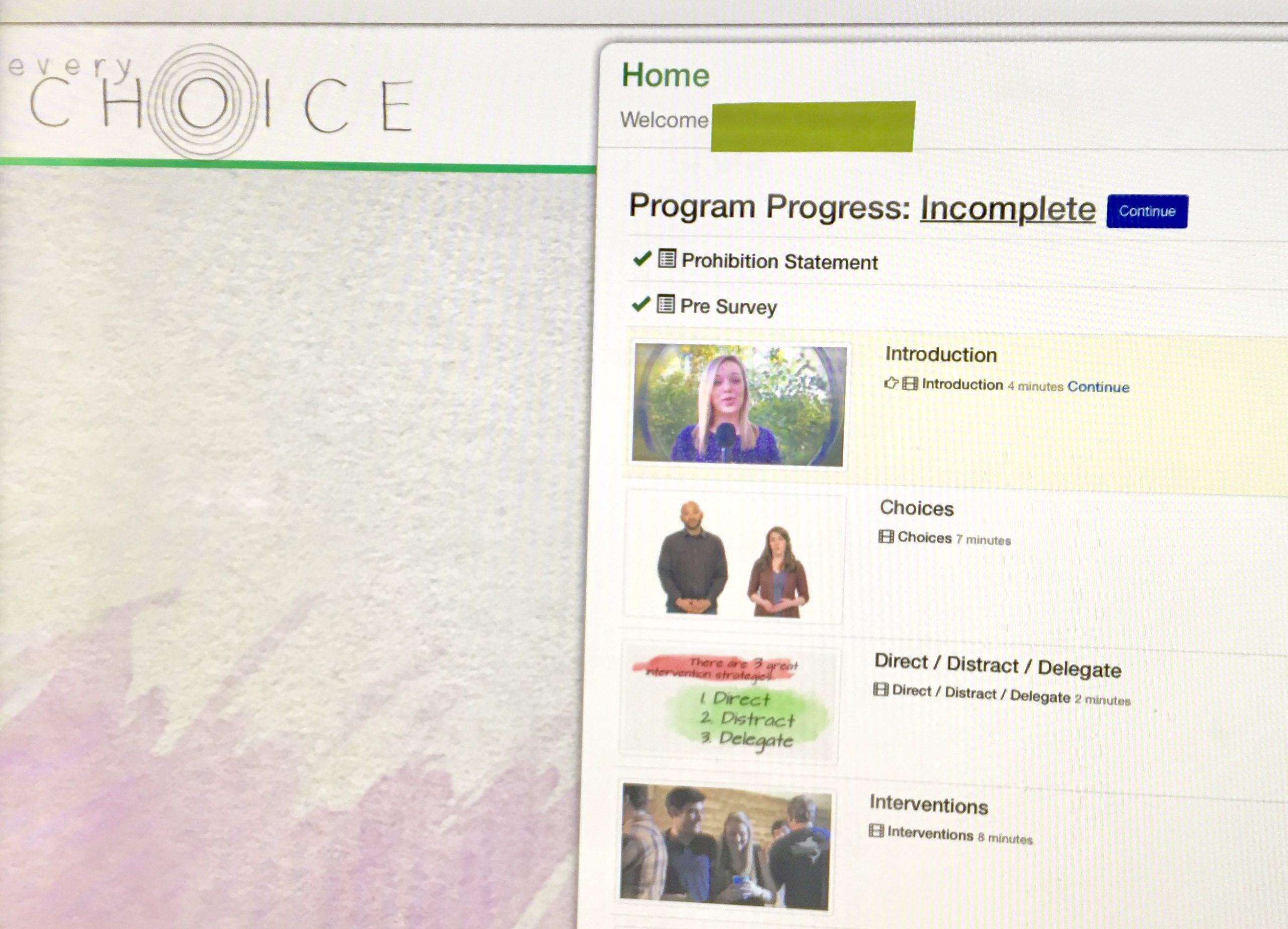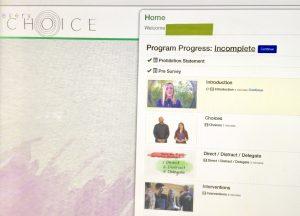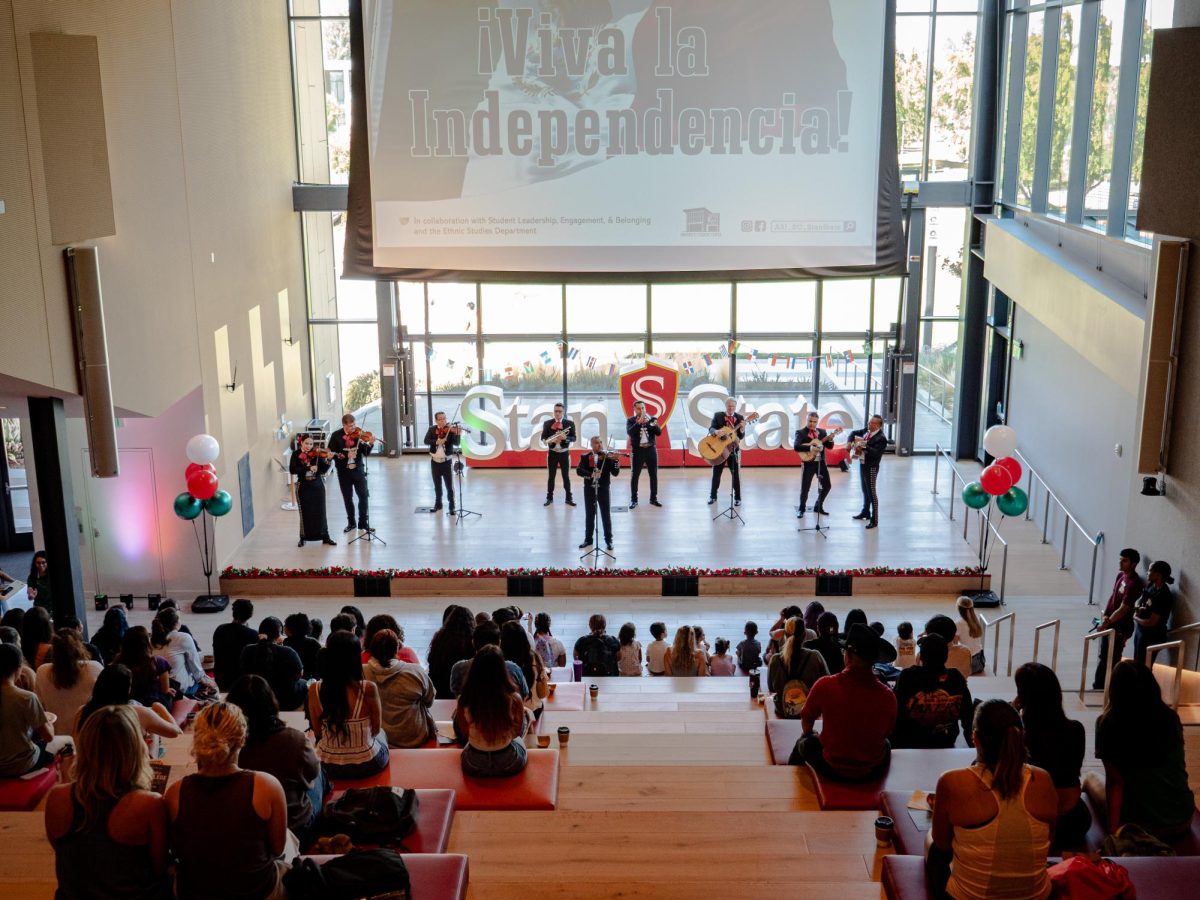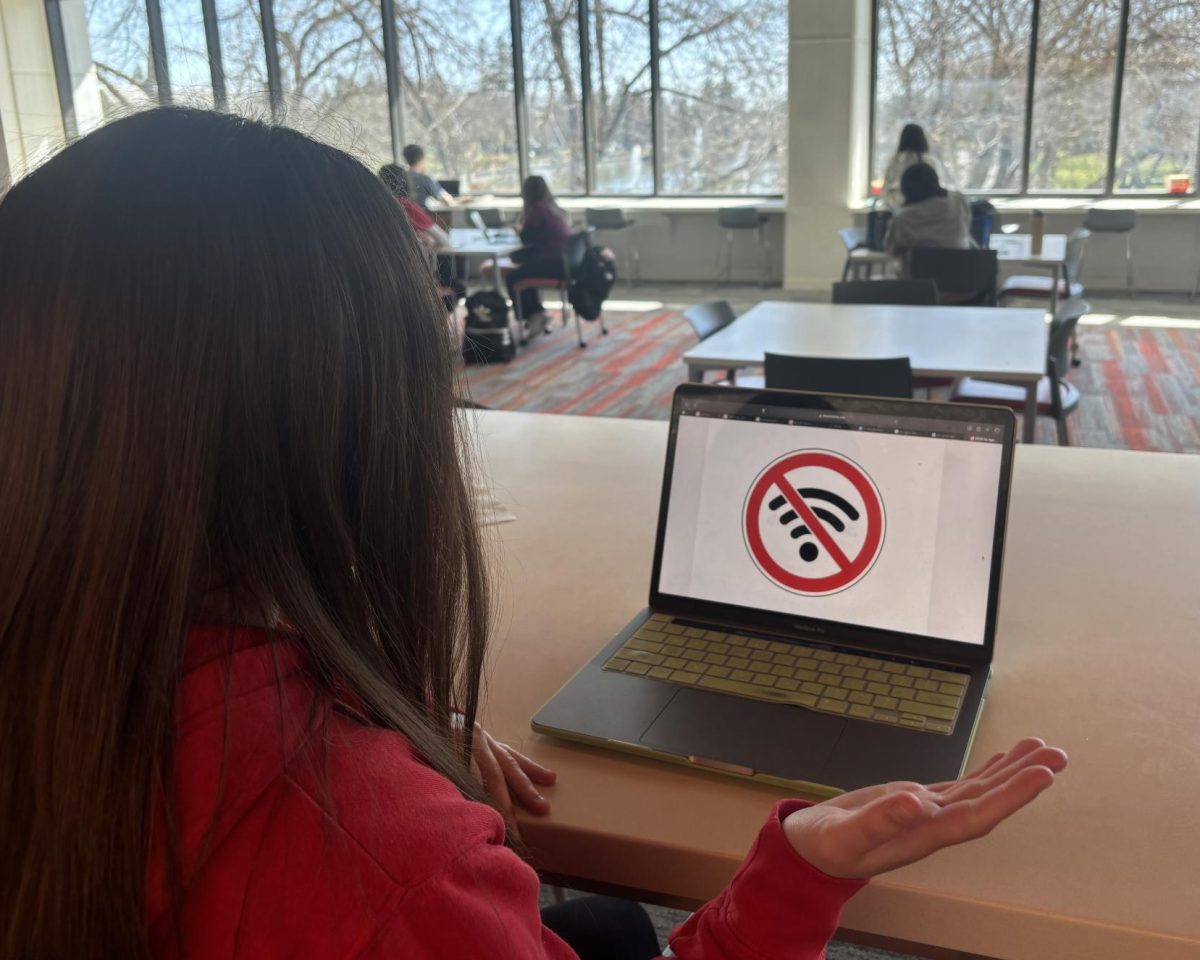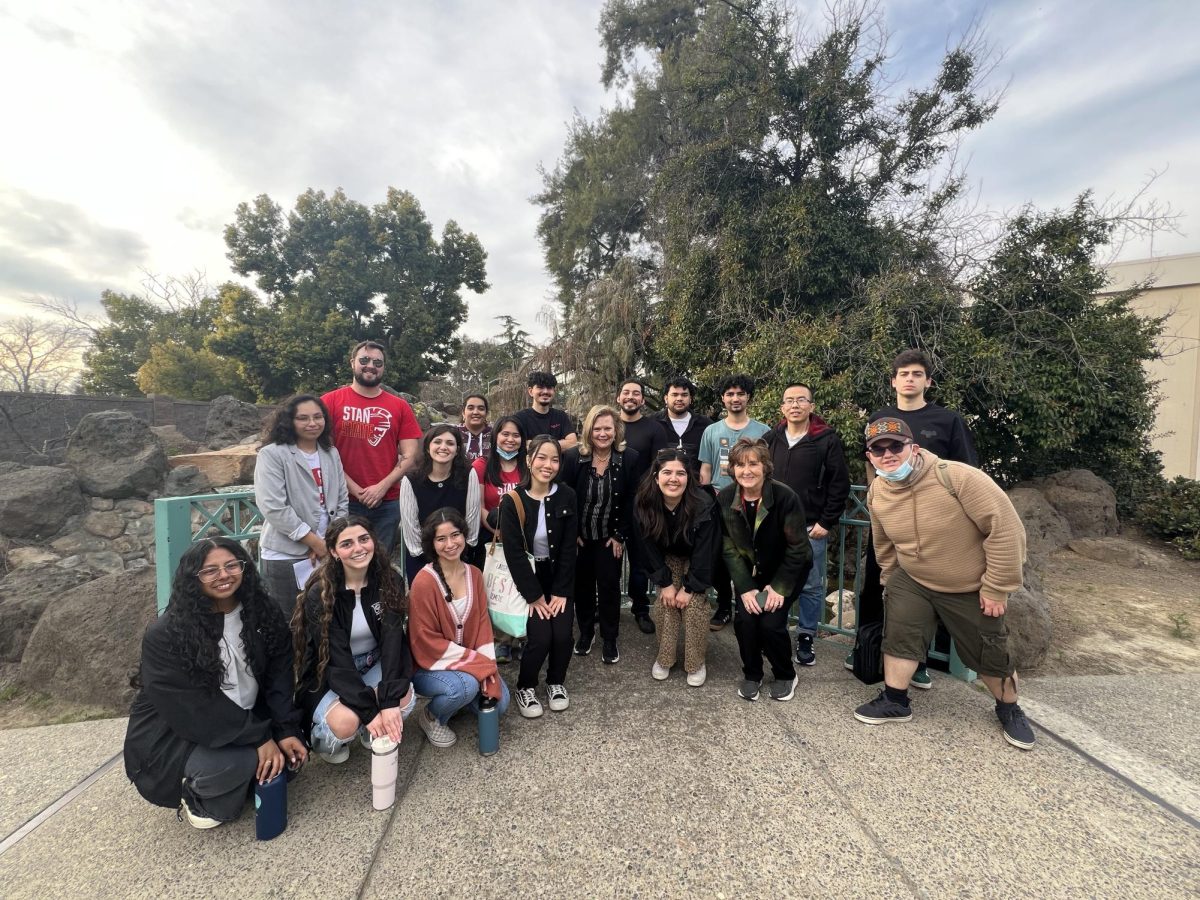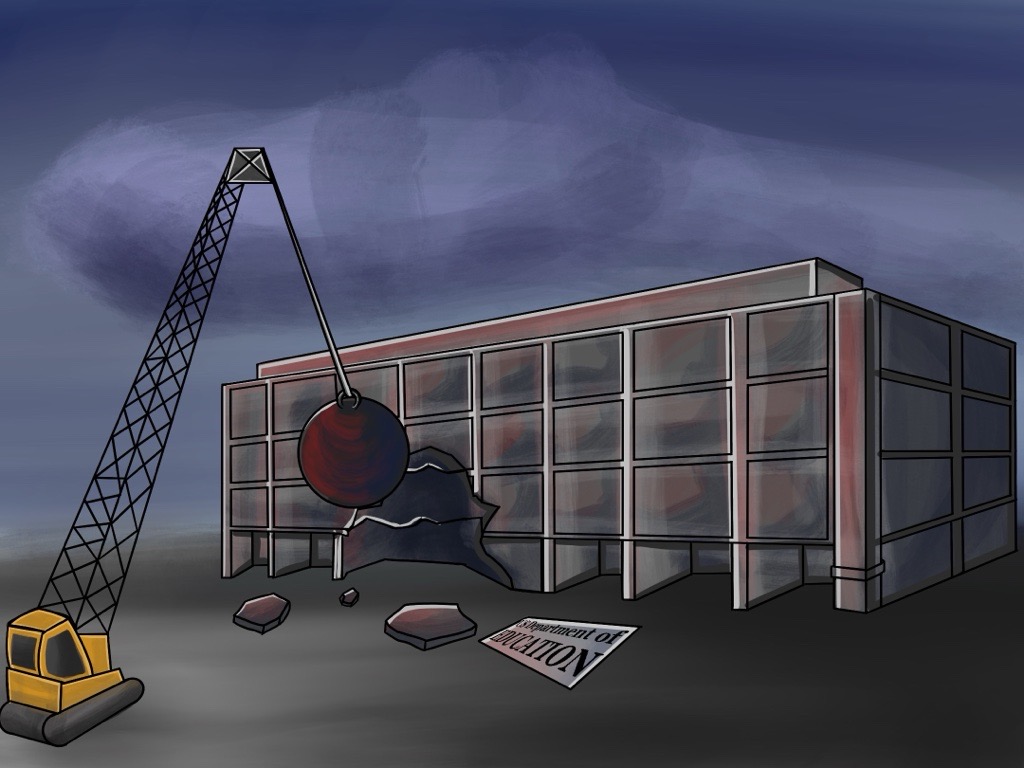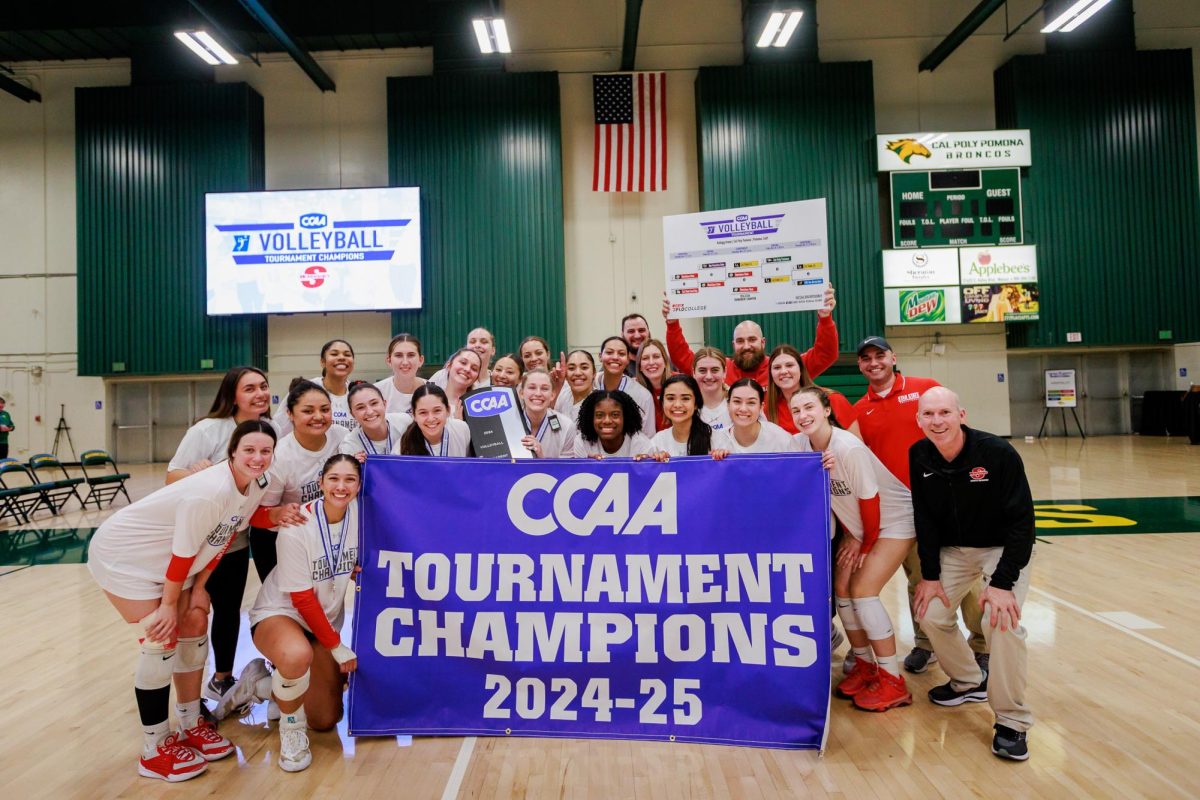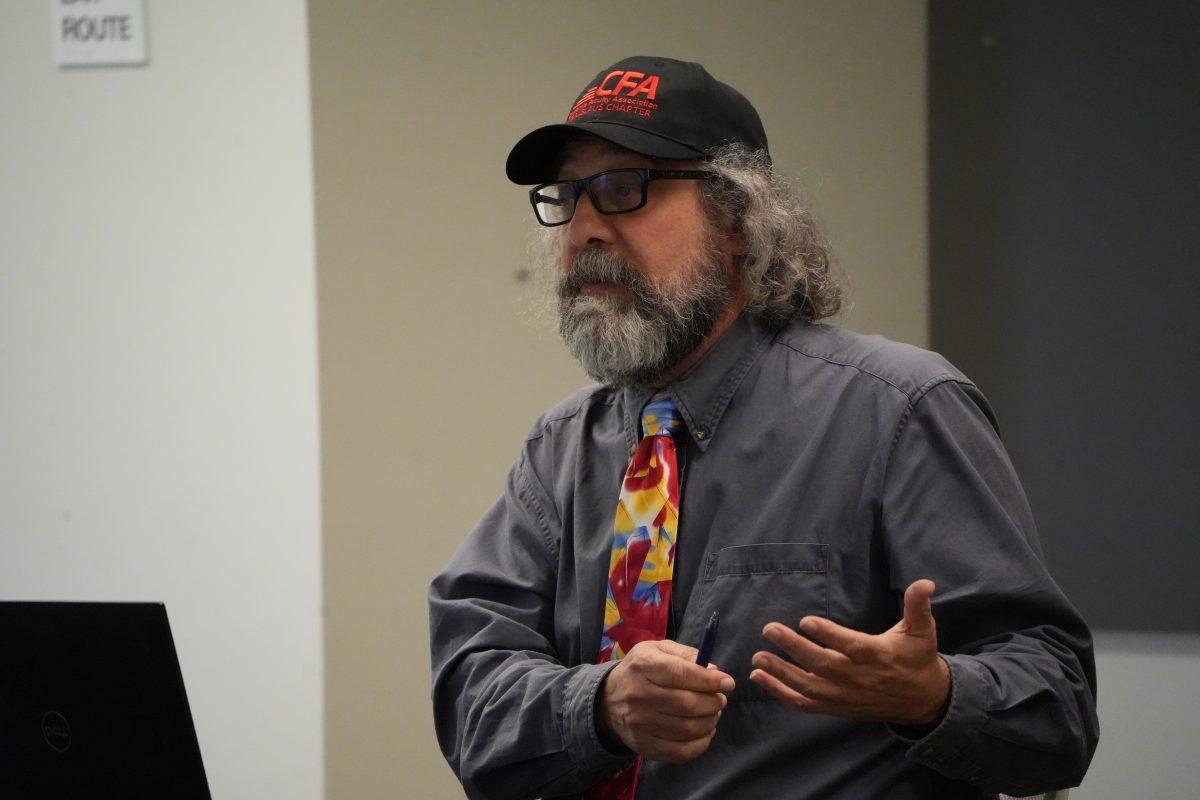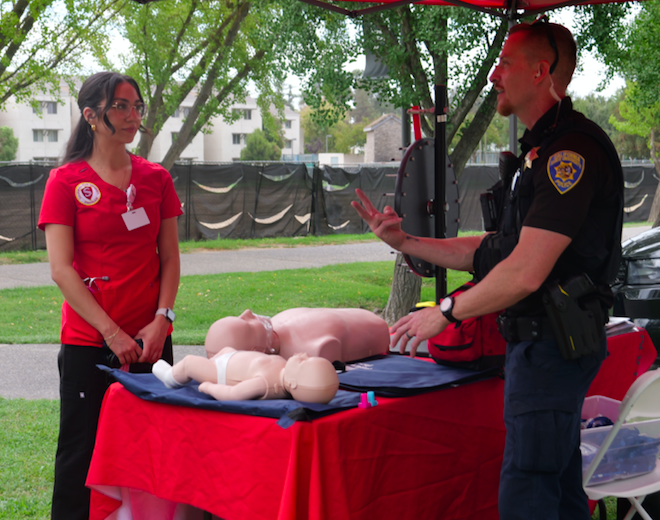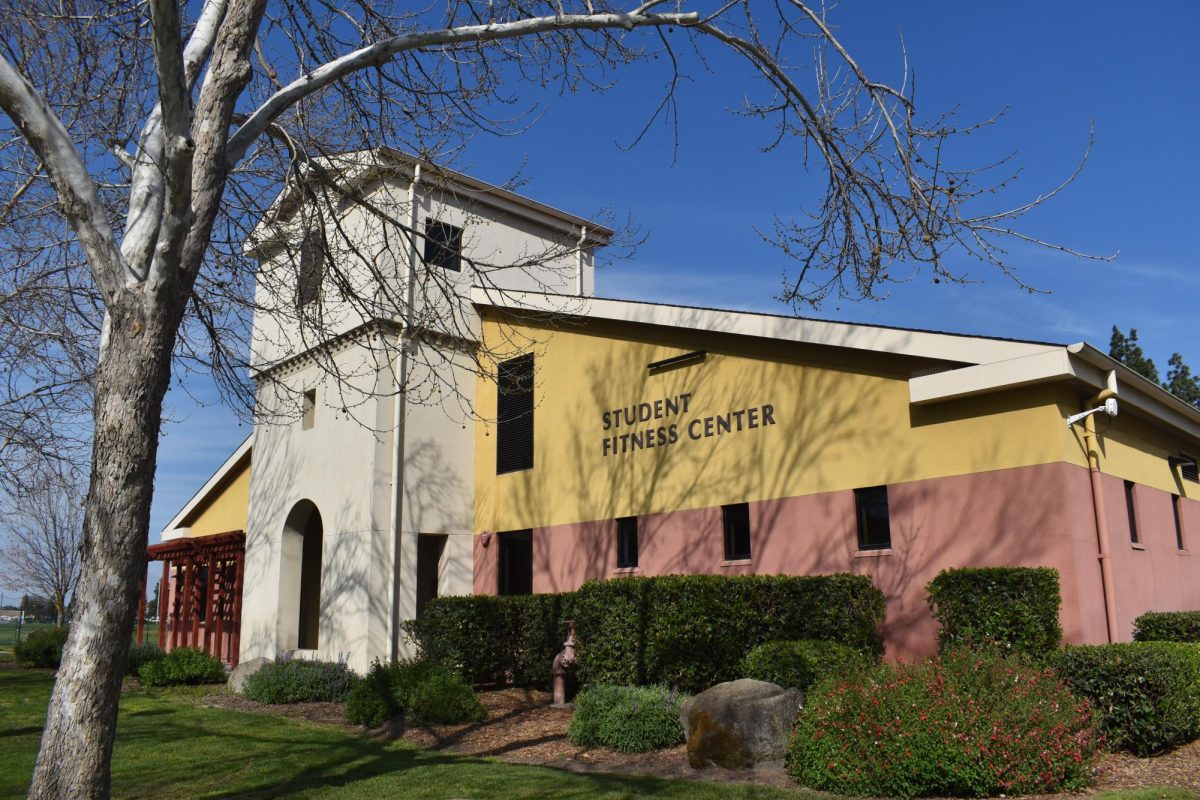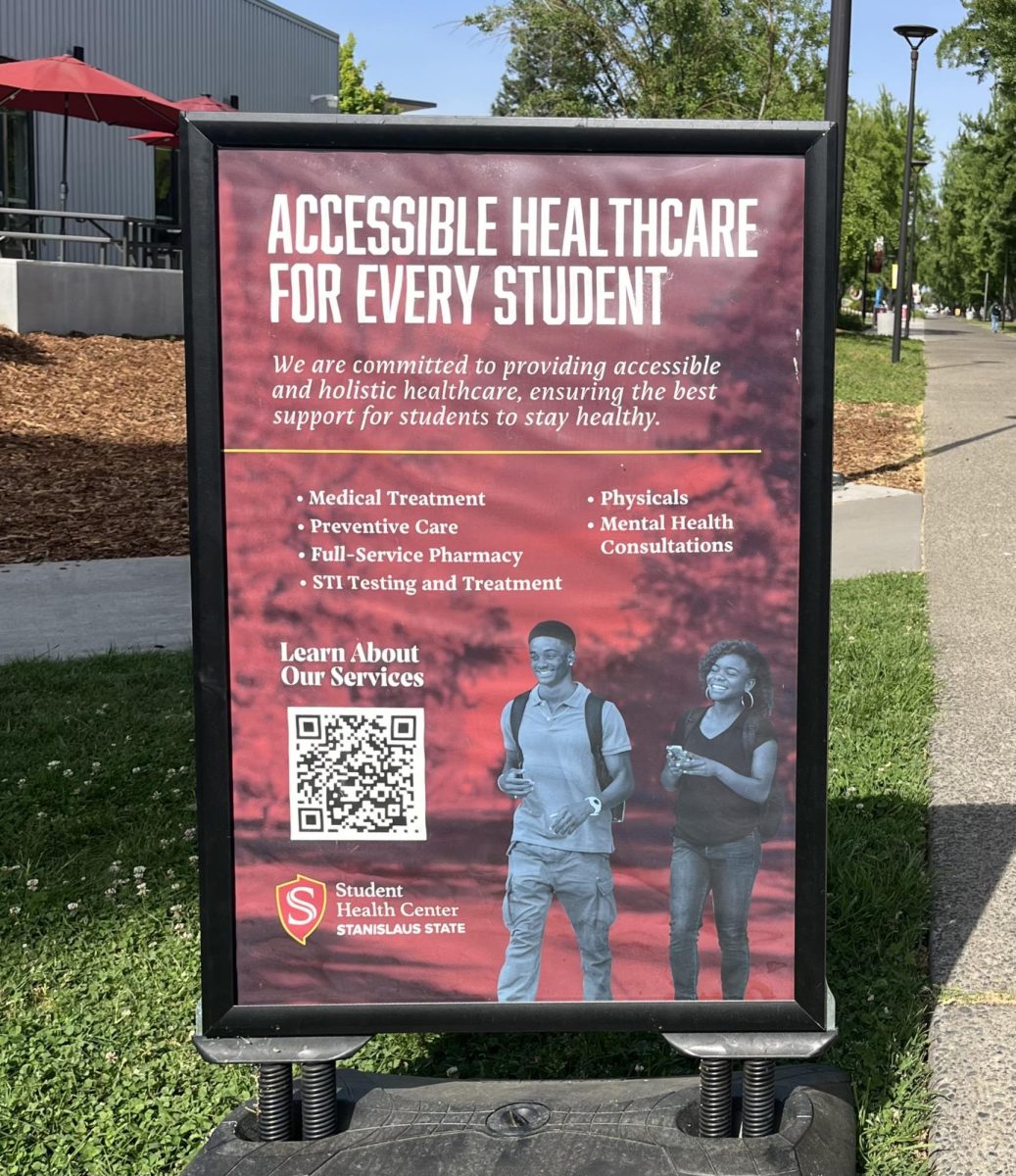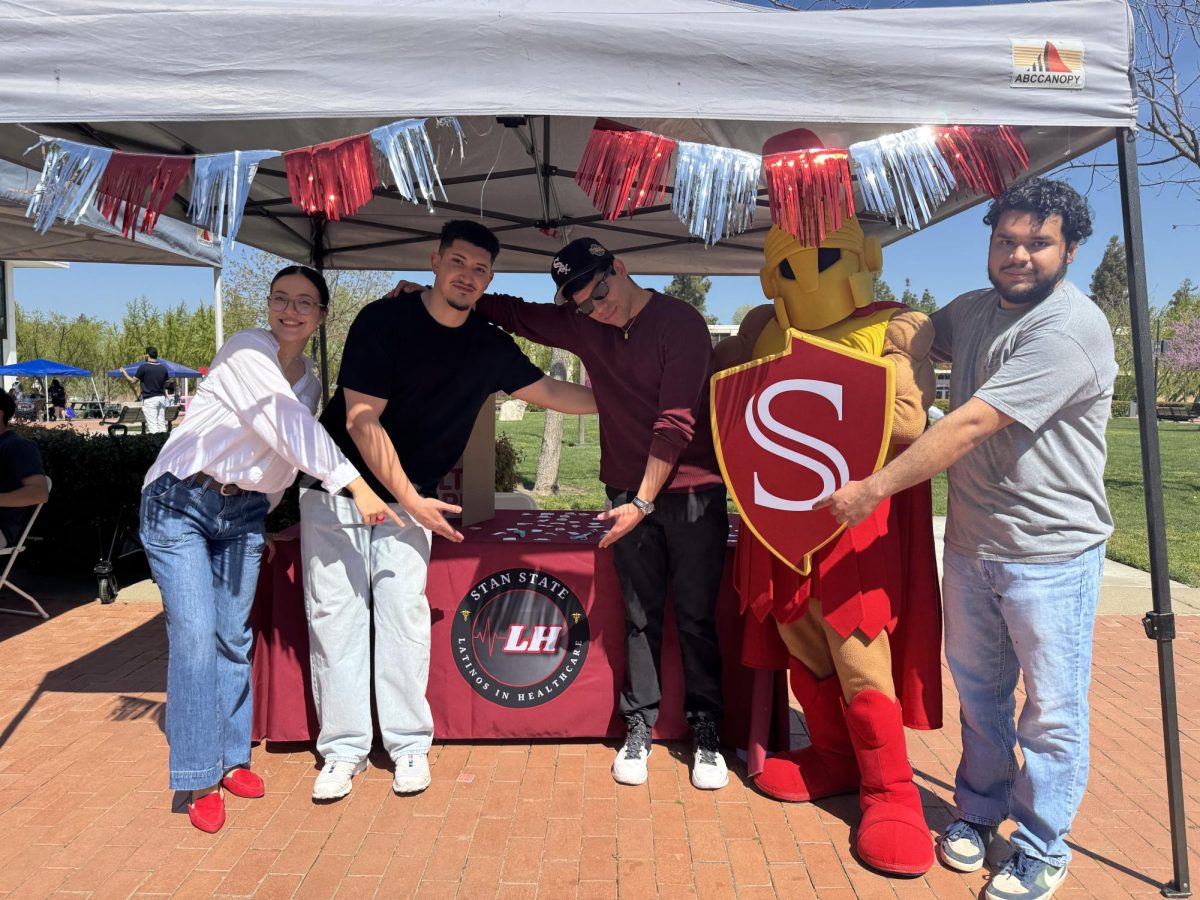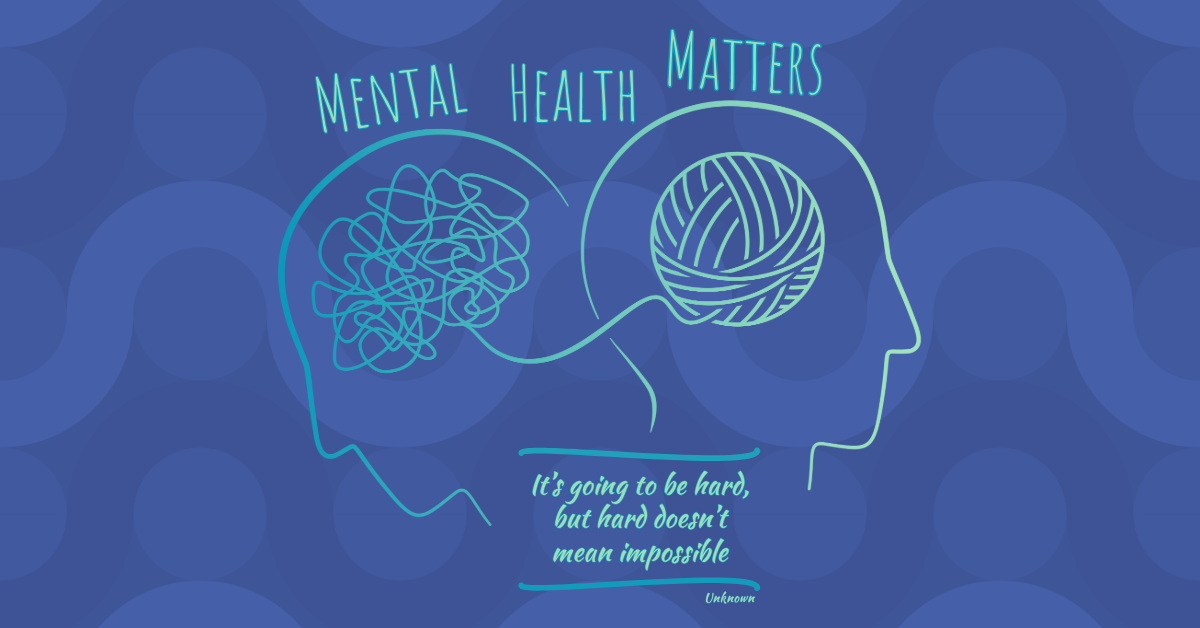In 2014, there were 7 reported incidents of forcible sexual offenses on the California State University, Stanislaus (Stan State), campus according to the 2015 Campus Security and Fire Safety Report.
The report was conducted by the University Police Department (UPD) and made available to the public.
This chilling statistic sheds light to a sensitive topic, sexual violence on campus.
Some students have become more aware of this topic through the highly publicized case of the former Stanford student, Brock Turner, who was found guilty of sexual assault.
“I knew it [sexual violence] was an issue from the Stanford guy [Brock Turner],” Blake Martin (sophomore, Business Management) said.
On our own Stan State campus, an online sexual violence prevention training for the 2016-2017 academic year has been made mandatory to all students to address this issue.
The deadline to complete the training is Oct. 1. Not completing this training by the deadline will result in a registration hold being placed on your account.
“The training is required each school year and is required for everyone, including students and all employees,” Meg Lewis, Deputy Title IX Campus and Training Program Manager for Stan State, said.
Each year, new students will be required to participate in the online “Not Anymore” program and each year continuing students must complete a refresher program.
The mandatory sexual violence prevention training stems directly from compliance with Executive Order 1095 issued in 2014 by California State University Chancellor, Timothy P. White.
Executive Order 1095 encompasses the implementation of Title IX.
“Title IX protects students, educators and school employees against all forms of sex or gender discrimination, including: sexual harassment, dating and domestic violence, other forms of sexual misconduct, stalking and retaliation,” according to the calstate.edu website.
A student describes Title IX as being “sexual education and no means no,” Leng Chang (graduate student, Math) said.
For those interested in learning more about the history of Title IX, the Title IX Office will be screening the “The Hunting Ground” documentary today at 2 p.m. and again at 5 p.m. in MSR 130.
Title IX relates to Stan State because sexual violence effects the campus and the community in various ways.
“Besides physical, emotional and psychological trauma to the individual victim, the overall campus community can experience fear, apprehension and anger when such an incident occurs,” UPD Lieutenant (Lt.) Matthew Dillon said.
Not all students are aware of the detrimental effects sexual violence can have.
After completing the “Not Anymore” program, the information provided was “eye-opening” to Hudson Berdino (sophomore, Art).
Another effect sexual violence can have on victims is that “the drop out rate for victims of sexual violence is larger than non-victims,” Julie Johnson, Deputy Title IX Coordinator/Interim Executive-in-Charge for the Division of Faculty Affairs and Human Resources, said.
This affects the campus and community because it can limit economic opportunities for students who drop out of school due to the trauma caused by sexual violence.
There are many resources available to students who have experienced sexual violence.
To the victims of sexual violence, “you are not alone,” Johnson said.
Diana Torres, Haven Center Victim Advocate, echoes Johnson’s outreach to victims by providing services such as crisis counseling, advocacy, support, accompaniment to court or hospital, information about reporting options and university resources.
For those who want to confide in the on-campus Victim Advocate, know that “I will not disclose any information unless consent is signed,” Torres said.
The Victim Advocate will only share what options are available for reporting and will not tell victims what to do.
Crisis intervention is available Monday through Friday, 8:30 a.m. – 5 p.m. and is located in the Science 1 building in S234. Appointments are preferred, but walk-ins are welcomed.
“It is important to be aware that sexual violence does happen on college campuses,” Torres said.
Some students have mixed feelings about the mandatory training.
However, the ability to start and pause the online mandatory training makes it an “efficient way to reach all students,” Johnson said.
One of the complaints about the mandatory training is the length of time it takes to complete it.
“It’s very time consuming, and if you’re going to be doing it in the middle of the semester, you’ve got all kinds of other stuff that you have to be doing,” Nicholas Butrica (senior, History) said.
On one hand, they believe the training is beneficial, but on they other hand they also believe it is a lengthy process.
“The fact that it is long means that people are going to take notice and say ‘if this is that long, it is an issue,’” Butrica said.
A fellow student shares Butrica’s opinion that the training is beneficial, “It could be beneficial if people know about them [online training] and actually take their time to look at them,” Selena Campana (senior, Sociology) said.
After completing the online training, sensitive emotions may arise.
“I would say it makes me feel sad that people are abused. Sad that stuff happens, but incredibly happy that there are programs out there,” Martin said.
One of the programs offered by the UPD is the Rape Aggression Defense (R.A.D.) program.
“The R.A.D. System of Self-Defense program…is the culmination of an effort to oppose violence within our society,” UPD Lieutenant (Lt.) Matthew Dillon said.
This program is offered to both male and female students.
Oct. 29 and Nov. 2 are the next available R.A.D. sessions. To sign up, contact Sergeant Cheri Silveira at [email protected].
Other services the UPD offers includes the “Warrior Express” shuttle service at night, blue light emergency call boxes, whistle defense and the emergency notifications system, STAN Alert.
“Educating people about all aspects of sexual violence and how to prevent it helps our campus to be a safe environment for all.” Lt. Dillon said.
Along with providing education, Johnson encourages those who have experienced sexual violence to seek assistance and support from someone you trust including the many resources here on campus.
Serving four years as the Deputy Title IX Coordinator, she believes that the groundwork for Title IX programs has been established with the assistance of the Safe Campus Committee, Lewis and Torres.
“There are sufficient resources to respond to Title IX complaints in a timely manner,” Johnson said.
Johnson now also serves as the Interim Executive-in-Charge for the Division of Faculty Affairs and Human Resources as of Aug. 18.
To learn more about Title IX or to file a report, click here.
To learn about myths and facts about sexual violence, click here.
“I think it’s good to keep that ‘rape is wrong’ and that ‘abuse happens’ fresh on our minds,” Martin said.
Categories:
Sexual violence prevention on campus
0
More to Discover


